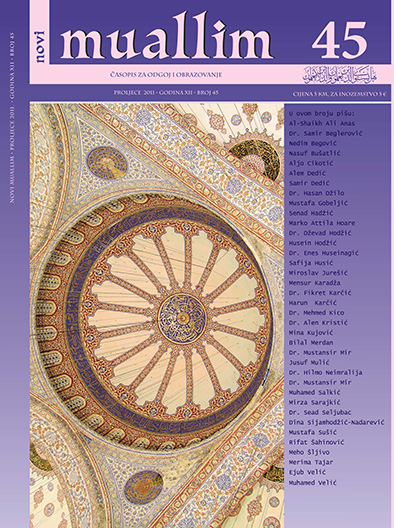CLONING - BIOETHICAL OR RELIGIOUS-ETHICAL PROBLEM?
DOI:
https://doi.org/10.26340/muallim.v12i45.716Keywords:
medicine, Science, human genetic engineering, biotechnology, cloning, Islam, Quransunnah, Shariah prohibition of cloning, fatwamorale, responsibilityAbstract
Cloning is a field of genetic engineering that engages in direct manipulation with genes and biological structures that comprise genes. Clone is a new entity with the identical genetic material as the one from which it is created. Starting from the fact that Quran explicitly states that all that is created is submitted to and made to serve man, we may say that in principle Islam allows cloning of plants and animals provided it does not cause a damage by bringing about new diseases for animals and people, for in this sense Islamic principle states that preventing the damage has a priority over achieving the benefit. Another condition that Islamic principles put before genetic engineering is that it must not be used as a mere experiment that would bring about the alterations in the nature of God’s creation especially animals, since we know that such manipulations have resulted in almost completely new species. However, Islam absolutely prohibits human cloning and that is for the following reasons:
• elimination of blood relations,
• disruption of family relations,
• disruption of social structures,
• possibility of disturbing the gender balance of population,
• risk of inadequate use of excess embryos for profit-making purposes or merging of blood relations.
Downloads
Published
How to Cite
Issue
Section
License
Naknada:
a. Časopis ne naplaćuje naknadu za obradu članaka (APC) i naknadu za podnošenje članaka.
Autori koji objavljuju u ovom časopisu pristaju na sljedeće uvijete:
- Autori zadržavaju autorska prava i pružaju časopisu pravo prvog objavljivanja, pri čemu će rad jednu godinu po objavljivanju biti podložan licenci Creative Commons imenovanje koja omogućuje drugima da dijele rad uz uvijet navođenja autorstva i izvornog objavljivanja u ovom časopisu.
- Autori mogu izraditi zasebne, ugovorne aranžmane za ne-ekskluzivnu distribuciju rada objavljenog u časopisu (npr. postavljanje u institucionalni repozitorij ili objavljivanje u knjizi), uz navođenje da je rad izvorno objavljen u ovom časopisu.


